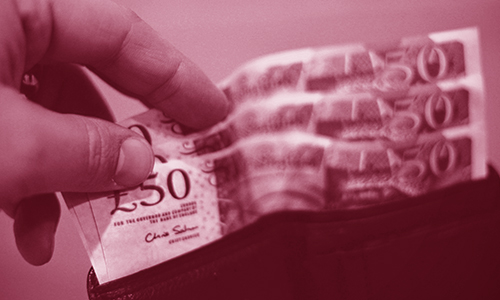As we approach the end of the tax year, many businesses will be reviewing how much profit they have made over the year and therefore, calculating how much money they could take out of the business in dividends.
A question that I am regularly asked is whether to pay out dividends BEFORE the end of the tax year or AFTER it? Of course, there is not one clear answer, but the following information may help you decide.

1. Remember that dividends are paid from money on which corporation tax has been (or will need to be) paid and the total amount that a company can pay in dividends is capped at the organisations’ level of retained profit. Not all profit made this tax year may be retained profit – you may need to cover losses in previous years – ask your accountant for assistance with calculating your retained profit level.
2. Every dividend that is paid out is liable for tax, which is paid by the recipient of the dividend. The current 2019/20 tax free dividend allowance is £2,000 – any dividend received over this level is taxed at 7.5% for a basic rate taxpayer, 32.5% for a higher rate taxpayer, and 38.1% for an additional rate taxpayer.
3. Bear in mind that dividends are subject to company law. As well as there being a cap on the total dividend value payable in the year, (see point 1 above) dividends have to be paid in proportion to shareholdings. For example, if George owns 60% of the company shares, then he receives 60% of the total dividend payable, if Charlotte owns 30%, she receives 30% of the dividend and Louis receives 10%.
TOP TIP
This percentage may be mitigated by having an alphabet share structure.
An example – Family-owned business Cambridge Royal Limited has three shareholders George, Charlotte and Louis. The business has an alphabet share structure whereby George owns 100% of ‘A’ shares, Charlotte 100% of ‘B’ shares and Louis 100% of ‘C’ shares.
This gives flexibility for the business to be tax efficient. This works by paying different dividends for each class of share depending on what income each shareholder earns (see point 4 below).
In this case, the total level of retained profits is £10,000:
Georges’ ‘A’ shares will receive 20% of the total dividend available (a total of £2,000)
Charlotte’s ‘B’ shares 50% (£5,000)
Louis’ ‘C’ shares 30% (£3,000)
Action Points
- Review your business accounts to understand if there will be any allowable profits to be extracted this year, which could be taken in the form of dividends.
- Check if you have paid out the most efficient salaries to all shareholders working within the company. It is generally tax efficient to take a small salary equal to the primary threshold for Class 1 NICS (for 2019/2020 this equates to £8,632).
- Consider if you are fully utilising all other allowances and benefits such as claiming for all mileage and small purchases such as pens and paper, ensure that you claim for using a room in your house as an office and so on.
- Then in order to ascertain the most effective way to pay dividends, understand what other income was earned by each shareholder to discover if the full personal allowance and dividend allowance has been utilised. For example, if someone has not used their full personal allowance of £12,500, consider paying them a higher value dividend to fully utilise the allowance and reduce the amount of tax payable.
Important Key Point
From all this information, determine whether and to whom you pay dividends in this tax year ie before 6th April, 2020 or in the next tax year ie on or after 6th April 2020. If a dividend is likely to take someone into a higher tax bracket, for example, you may wish to defer payment until the next tax year.
Read HB Accountants‘ blog on Tax Tips for High Earners
Our tax team is on hand to help answer any of your tax questions and to help you and your business. Contact Karen karenr@hbaccountants.co.uk or Amy amy@hbaccountants.co.uk today for bespoke advice.

